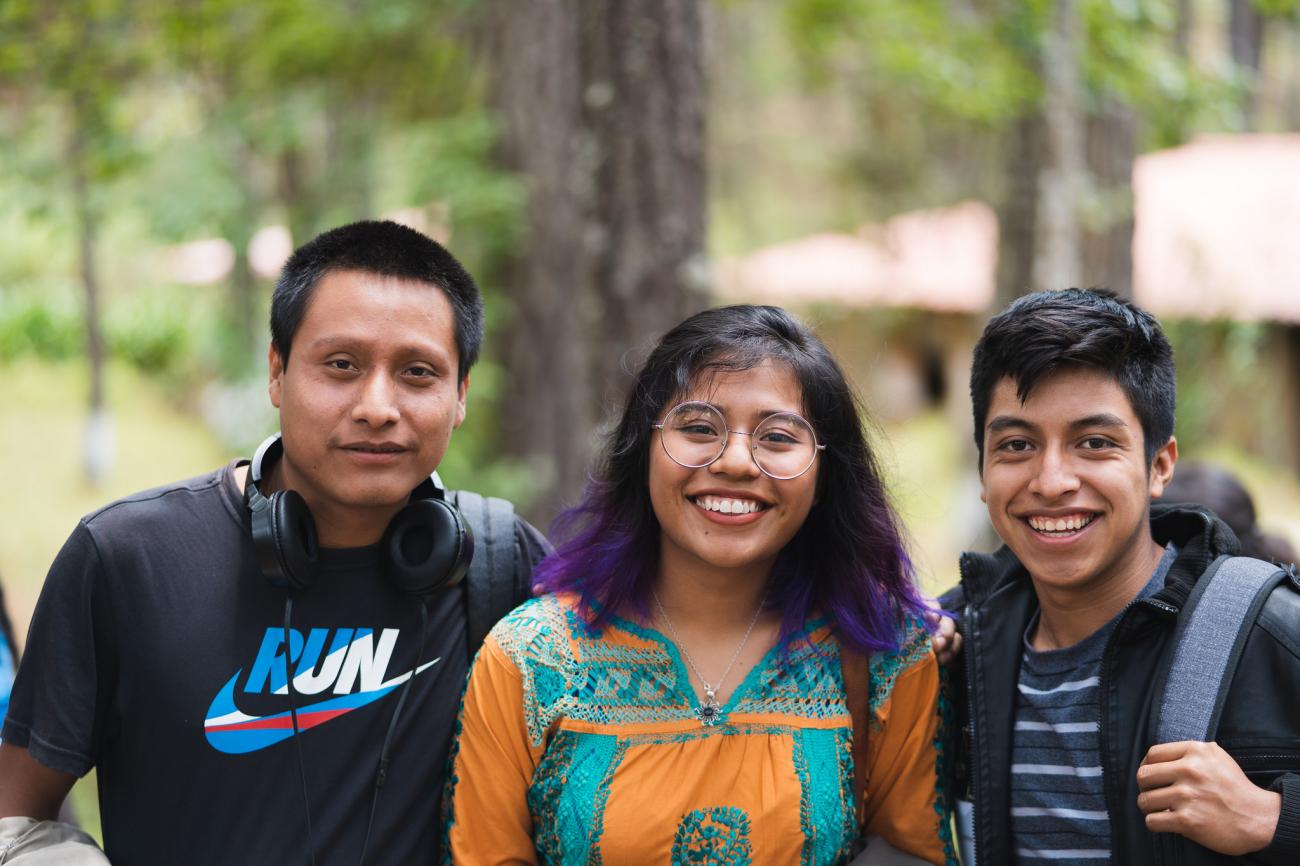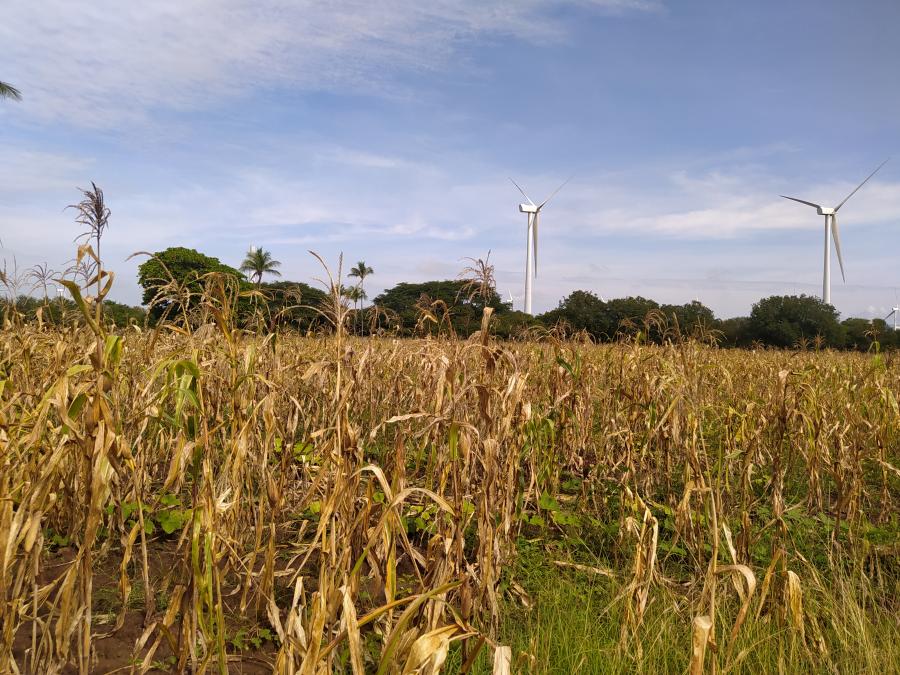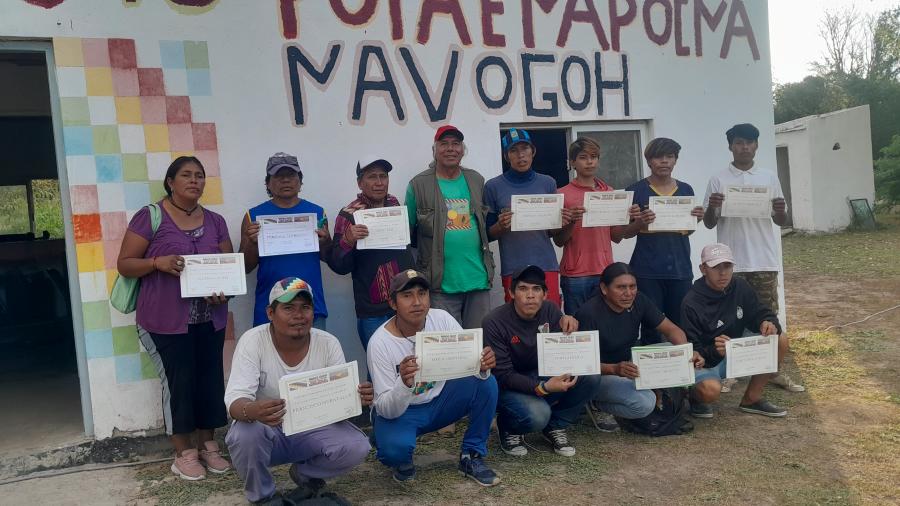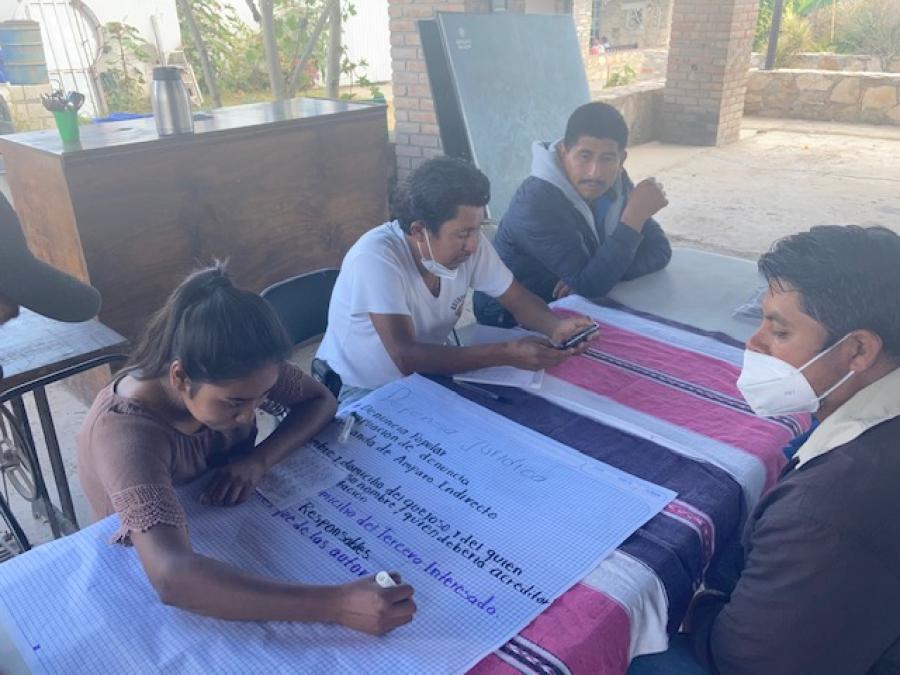
Zyania Roxana Santiago Aguilar (Zapotec), seventeen, is one of Cultural Survival’s Indigenous Community Media Youth Fellows from Radio Calenda, La Voz de Valle in Oaxaca, México (pictured above in center). Zyania was only three years old when she began at Radio Calenda, leading the creation of children’s program until she was 12. In 2007, she won second place in the "AMARC-60" anniversary contest. She was also the youngest participant in a youth program "Power Young Radio" in 2015 and 2016. Since 2015, Zyania has run the "A New Way of Life" program focused on an Alcoholics Anonymous group in the district of Ocotlán. Zyania recently participated in an convening organized by Cultural Survival and the International Indian Treaty Council in August, in Ixtlán de Juárez, Oaxaca, Mexico, "Respecting Our Traditional Science and Ways of Knowing: Indigenous Peoples’ Sovereignty, Lifeways, and Climate Change.” She wrote about her experience:
Women in the Sierra Madre valley play an extremely important role. All the responsibilities that burden their shoulders depend on the integrity of the Mother Earth because part of our lifeways, what we drink and we eat. Just as a woman offers her milk at the birth to her children, the fields provide water and vegetables. We sow our food and raise the animals we have, that is part of our economy, our markets and our shops. Women day by day carry out these tasks alongside their husbands and children. The relationship of taking care of the Earth is part of our culture. Before colonization, women were much more respected for creating life, however, today the objectification of the female body deforms this concept and their respect, much like the Earth, which has been relegated from being our Mother to being a source of raw material.
Economic models which have no regard for living beings often violate both the rights of the land and human rights. Exploiting the Earth generates miserable conditions for a community, who becomes more vulnerable to labor exploitation, to which young women are most impacted. As human beings, but first as living beings, we are part of something greater and are aware, recognizing the selfless way we were given everything and the vulnerability of our planet. We owe it to her to take care of our Mother Earth.
When we talk about liberation we usually think of it in a human sense. We think that the Earth and environment are property, not taking into account that the Mother Earth is a living entity that enjoys rights and liberties as much as we do.
Having so many people with such a wide range of knowledge [at the convening] was overwhelming. Everyone shared different problems they are facing in their communities, however, what makes the experience captivating is to hear their experiences in their own words. Some people despise the participation of youth, others say that youth are the future, but do not provide spaces where youth can truly come into direct contact with issues of true relevance. Although we are the generation that will continue to work on the issues of climate change, we are only seen as candidates for minor programs with theoretical information. That is why it is important to remember our commitment to the Earth alongside preparing youth in witnessing the moments that led to these situations to act in the best way possible. In this way we understand the gravity and importance of our active participation in mitigating climate change. Currently, the most exploited capacity of youth has been its proximity to technology, but this is just a reflection of what has characterized youth. It is our energy that moves us to learn and work. If we add this to an awakening consciousness in which our history, life forms, and norms are contemplated, we, the youth, have that thirst for natural growth that can provide a generation with fresh ideas.
Everyone is young at some point in their life. It is recent that youth ideas have been given serious consideration. I believe, the opening has brought countless benefits historically which is why I, as an Indigenous youth, think that our situation can improve even more, so we can work shoulder to shoulder with our elders and people with more experience to enrich each other.




